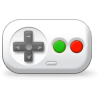-
Posts
33 -
Joined
-
Last visited
Content Type
Profiles
Forums
Articles
Downloads
Gallery
Blogs
Posts posted by Pineappleking
-
-
22 minutes ago, locvez said:
According to another poster -
For disk image formats (ssd, dsd etc.) clicking on a game in LaunchBox will by default auto-boot it in BeebEm
What format are your Roms in?
I often have to ctrl+f12 to get my games to run when the command prompt opens
I'll try run through the above instructions at some point soon and report back if they work or have issues
Thank you, locvez. I´ve read the same post, a few hours ago

I don´t know, whats wrong, with my settings. First I setup the emulator to launchbox, double-clicked on a game and the emulator startet - but with no rom image in the disk drive. After that I tried some checkbox-settings, on and off, but I always got the same result.Nearly 99% of my roms are in the .ssd file-format. A few more are in the .uef file-format.
-
On 6/19/2021 at 8:20 AM, mcfasa09 said:
I have BBC Micro working seamlessly on my cabinet using only the arcade buttons, and no keyboard. It was anything but straight forward getting it running flawlessly. This will go well beyond the scope of the original post here, but I want this here for my own purpose in case I lose my hard drive data at any point, and also to help others if you dare figure this novel of an explanation out!

Here is what I did:
In BeebEm, go to the Options tab and check "Hide Cursor" and "User Defined Mapping". Be sure to click on Options/Save Preferences after this, or BeebEm's configuration file will not reflect these changes, and they won't happen when you're trying to play your games.
In LaunchBox go to Tools/Manage Emulators (if you've already created a BBC Micro Emulator in LaunchBox, otherwise set one up, and still follow these steps), then in "Default command line parameters", type "%romfile%" (including the quotes). For the check boxes, uncheck "Don't use quotes", but check "No space before ROM" and "Use file name only without file extension or folder path". In "Sample Command" type .LaunchBoxBBCMicro.ahk "%romfile%""File" (with the quotes).
Next, in the folder where BeebEm.exe is located, paste the .LaunchBoxBBCMicro file I attached to this reply. You will need to right click on the AHK file, and edit it. You'll need to change "C:\LaunchBox\Roms\BBC" "Micro\%romname%.ssd" to point towards your rom path (notice that " " is used for a space in your path). You will also need to change "C:\LaunchBox\Emulators\BBC Micro\KEYBOARD_MAPPINGS\%romname%.ahk" to point to the folder where you are going to keep your AHK remapping files (mentioned immediately below).
Unfortunately BBC Micro does not use the same keys on every game. This is a big problem for an arcade cabinet unless you really feel like digging out a keyboard every time you play your BBC Micro games, and the work around is extremely tedious. To get around this, I had to custom code an AHK script for each of my games. These AHK scripts must have the same name as the rom file, and should not include any spaces. You will likely need to edit the rom file name so it does not have spaces. I attached all of the AHK button mapping files I've made to this point in the rar file.
For reference when looking at the AHK scripts:
Note #1:
My cabinet has the buttons remapped using a program called Xpadder to the following: player 1 joystick mapped to a(joystick up), b(joystick down), c(joystick left), d(joystick right), e(button 1), f(button 2), g(button 3), h(button 4), i(button 5), j(button 6), k(player 1 start), l(player 1 select), m(joystick 2 up), n(joystick 2 down), o(joystick 2 left), p(joystick 2 right), q(button 7), r(button 8), s(button 9), t(button 10), u(button 11), v(button 12), w(player 2 start), x(player 2 select), y(left pinball button), and z(right pinball button).
Note #2:
The symbols or letters on the right side of the "::" in the script are the ones that my arcade buttons are being mapped to. For example, a::` implies that when I move my player 1 joystick up, it sends ` instead. The ` button is "up" in 3D Dotty on the BBC Micro in BeebEm.
Note #3:
Unfortunately BeebEm does not respond well to AHK mappings such as "Send {n Down}{Enter Down}" "Sleep 50" "Send {Enter Up}{n Up}". As a result, you will see how I remapped "k" in the 3D Dotty script. BeebEm works fine when remapping multiple keys in this way, including the "Sleep 50" between all of the key inputs.
Note #4:
The way I exit out of games on my cabinet is by hitting both the select and start buttons simultaneously. You'll see at the bottom of the script that I have four possible remapping's to exit the game. Those account for if the user hits the select button followed by the start button, or vice versa, and they could do that on the player 1 buttons, or the player 2 buttons. If you have a dedicated exit button, then you would only need to have a single remapping.
Note #5:
You will see a section at the top of every remapping script labeled, "Make inactive keys do nothing". This section is there because, for example, if I hit a button on the player 2 side of my button panel that sends some keystroke, BeebEm may react to that keystroke, even though I didn't want that button to do anything.
Rather than find out which buttons did something in any given game, I just chose to include that "Make inactive keys do nothing" section at the top of every script where all other buttons not used in the given script do nothing (i.e. all they do is send "Return" which AHK interprets as essentially move along, nothing to see here).
Some of the buttons in that section will have a dollar sign ($) next to them. This is needed for AHK to understand that it should still be able to send that keystroke programmatically in its code. For example, c::z will make my player 1 left joystick which would otherwise send "c" to BeebEm send "z" instead. However I do not want my right side pinball button which would otherwise send "z" to be interpreted by BeebEm as the same as left on the player 1 joystick. So in the "Make inactive keys do nothing" section you would see "$z::return". This tells AHK to allow "z" to still be sent by its own code "c::z", but the "z" button on my arcade just sends "return" (i.e. do nothing).
Hello,
I followed mcfasa09´s guide, but I can´t get the roms directly run, through launchbox. First problem is; you wrote: "In "Sample Command" type .LaunchBoxBBCMicro.ahk "%romfile%""File" (with the quotes)."
But for me, it´s not possible, to edit the Sample Command-line.
When I start a rom through launchbox, the emulator (beebem 4.17) will start and shows a command-promt. It will not autostart any rom
Can someone helb me, to get it work?
-
13 hours ago, sundogak said:
You have to setup two RA CFG files and folders. One that was setup for the 5200 and one for the 8-bit. Then in your LB install you point to the specific CFG file within the "Extra Command Line Parameters" field like below:
-c "config\Atari800_XL\atari800_libretro.cfg"When you point to a different folder then that folder contains the unique CFG and options and you don't overwrite them. So in my case above I setup the "normal" install folder with a 5200 option set. Then the second instance points to a separate folder for the 8-bit CFG. If you set RA up to save *.OPT files uniquely then you will see an Atari800.opt file in each folder and the key item within the option file being set to tell it which system to run:
atari800_system = "5200"and in 8-bit folder Atari800.opt file has this:
atari800_system = "800XL (64K)"You are a genius! Thanks a lot!
Edit: Sorry... After a few tries, it didn´t work for me.
Can you explain a bit more steps? The command-line seems to work. When I start retroarch I´ll get the message, that RA used another configuration file. But it always uses the congif, I did before.
In my root-folder is a cfg-file called ".atari800.cfg". What I did; I copied this file in the self-created folder /config/Atari800. There was a text-line called "MACHINE_TYPE=Atari 800XL".I did the same with a folder /config/Atari5200, but I changed the machine-type line to "5200". So when I start retroarch it will completely change these both cfg-files and then the machine-type lines will complete missed.
Can you tell me, what did I wrong?
-
 1
1
-
-
Hello,
I´m trying to emulate "some" Atari-systems and woud like to use retroarch.
I use the atari800 core, for the emulaion. And It works! But....
When I set the core-settings to machine:atari800, the atari800 roms will work, but not them of the atari5200.
When I set the core-settings to machine:atari5200, the atari5200 roms will work, but not them, of the atari800 ?
I´ve not seen an option, that retroarch automaticly changed the system. So is there any command-line, to do it, in launchbox? Or are there any other options? I tried to clone the atari800 core, renamed it to atari5200. Retroarch found it, but the config-file is the same ? -
Hello,
this is my first post, so please have a little indulgence, if its a stupid question

I´ve a folder with 1500 Arcade-Roms. The problem is, that there are roms, which can be played with retroarch, with a FinalBurnAlpha core, some are playable with a mame core and so on. But there are games, which are unknown, or I don´t now which core I have to use. So whats the best way to import them in Launch-Box. Is there a way, that Launch-Box will check the roms, and automatic sort them, by a useable core?



Problems with running the i800 core directly from Retroarch??
in Emulation
Posted
Thank you very much. It worked, for me, now. I don´t know, what I did wrong. I started again and with your help it works